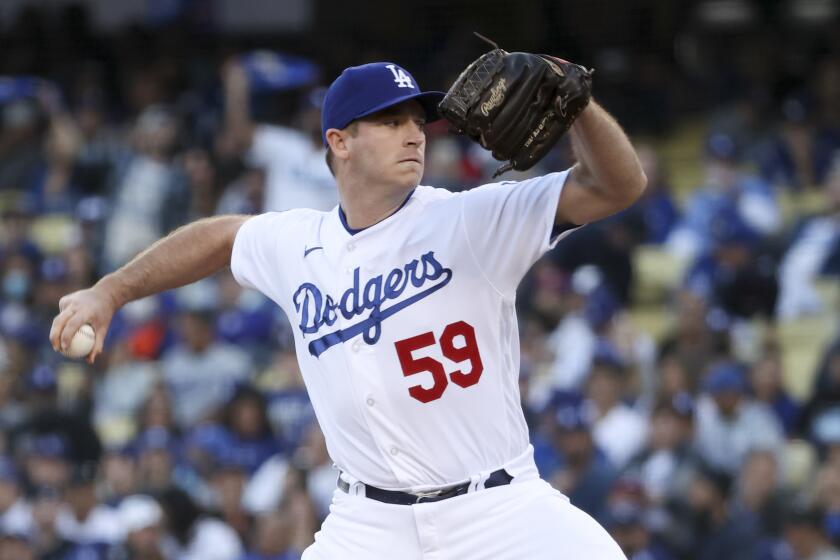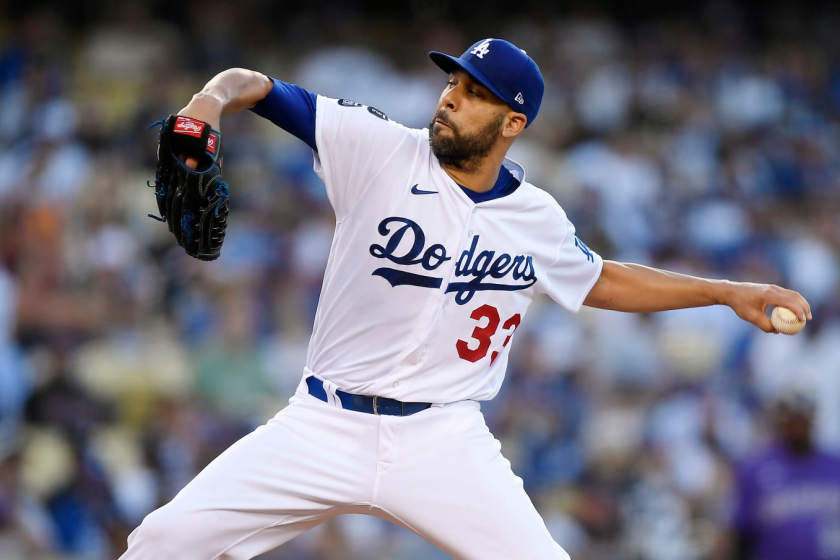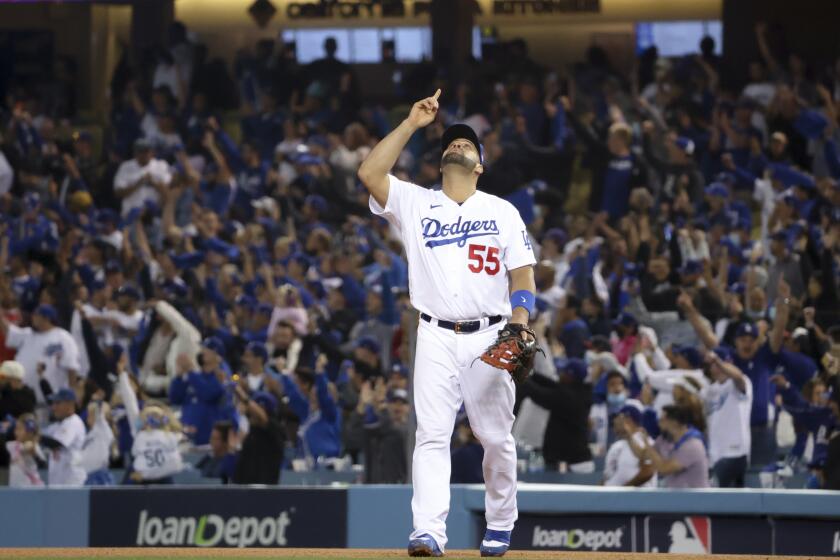Commentary: Baseball needs to showcase its traditional playoff stars — starting pitchers
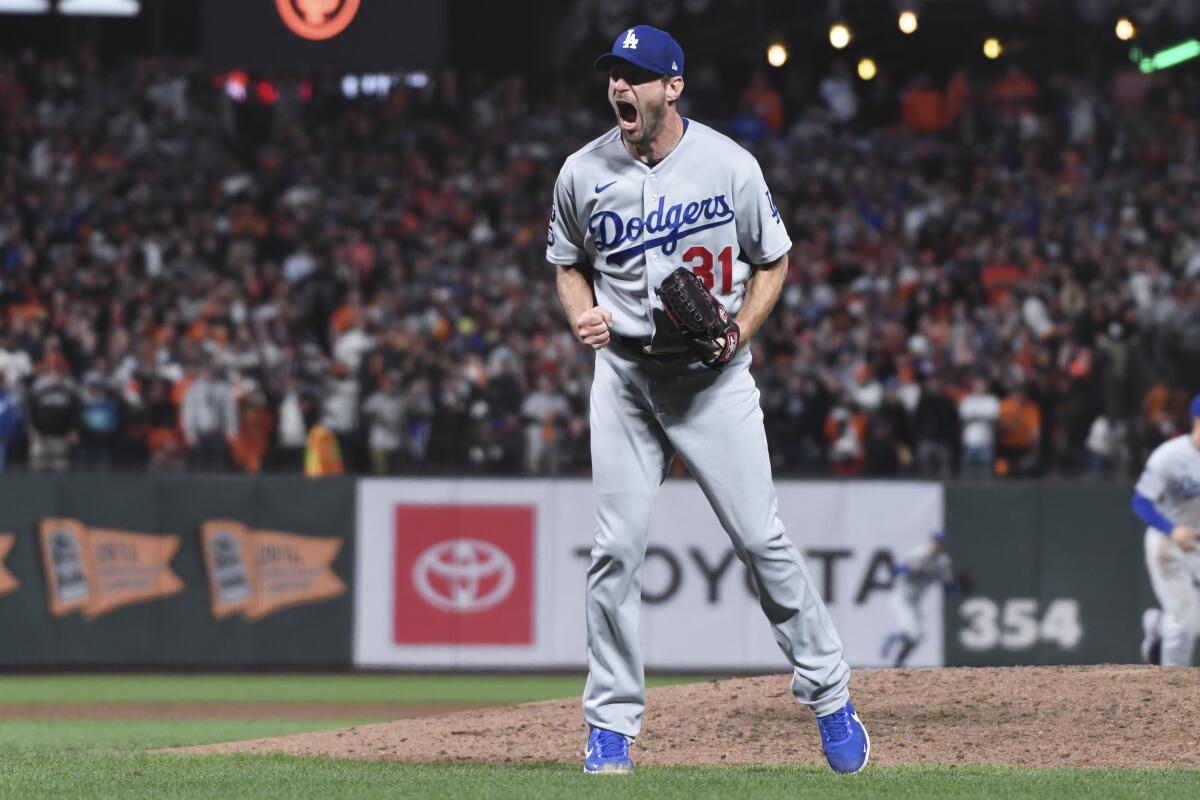
- Share via
For a position player, the classic postseason images come in moments: Kirk Gibson limping around the bases on his legendary home run; Justin Turner knifing through midair to apply a tag and then swirling 180 degrees to throw out another runner from one knee; Brett Phillips giddily spinning like an airplane after his single triggered a walk-off circus.
For more than a century, the pitchers have been the enduring legends of the fall. From Sandy Koufax to Orel Hershiser, from Bob Gibson to Mickey Lolich, from Randy Johnson to Madison Bumgarner, these are the men who stood tall atop the mound, taming the powerful opposition inning after inning, whatever the inning, rested or not.
The pitchers hold our attention. They hold the ball, for half the game. A position player might come to bat once an hour, and the hero could be Mickey Mantle or David Freese.
Evan Phillips played a key role in the Dodgers overcoming a potential disaster when Joe Kelly was injured. He also did something special for Andy Burns.
Sports are no different than movies: If you want America buzzing, you want a production that you can sell as a capital-E event. Stars do that. In October, the starting pitchers are the stars.
It is why Los Angeles erupted in a citywide hug for Clayton Kershaw last year. The Dodgers’ Hall of Famer-in-waiting had started Game 1 of a postseason series 11 times before he could slay his October dragons. The storyline had developed over a dozen years, and we were invested in the happy ending.
In the first five games of this National League Championship Series, a starting pitcher has reached the sixth inning once. Relievers have pitched 61% of the innings, with the blame on an unholy trinity of openers, bullpen games and ineffective and/or fatigued starters.
Teams would not use openers and bullpen games if they did not consider them proven and effective paths toward victory. But remember how the NBA has been derided for its “load management” concept? If LeBron James sits out a routine midseason game in Sacramento, the Lakers are preserving him for the playoffs.
What baseball has become, essentially, is load management in the playoffs. That might win your team a game, but it can lose your sport an audience.
“There’s a definite — I don’t want to say ‘disconnect,’ ” Kershaw said, between “fans and the entertainment side of it, and then based on what is actually working.”
It certainly appears to be a disconnect.
Veteran left-hander David Price has yet to pitch for the Dodgers in the playoffs in 2021 or 2020. Now he might get that opportunity.
Openers can work. Pitchers throw harder than ever, and fewer innings than ever, and even then they get injured because velocity taxes arms. Kershaw acknowledges there is no simple fix, although he said he likes the “Double Hook” proposal that would force teams to lose their designated hitter when they remove their starting pitcher.
“I’m not one of these old-school tradition guys where ‘Oh, the game was so much better,’ ” Kershaw said. “No, the game is great right now.
“But I do agree that, if you have the Max Scherzer vs. somebody or the Walker Buehler vs. somebody, the Max Fried, the Charlie Morton, I get excited about that, as a guy watching the game. If we could figure out a way to put more emphasis on that, I think it would be great.”
Imagine trying to lure the young fan and the casual fan with this series: The inning breaks are long enough, without throwing in 52 pitching changes over five games.
Commercial time: two minutes and 55 seconds for inning breaks; two minutes and 25 seconds for pitching changes.
In the ALCS, with 46 pitching changes over the first five games, three of those games took more than four hours to play.
Stan Kasten, the president of the Dodgers, formerly was the general manager of the NBA’s Atlanta Hawks. Back in the day, he heard all about how the three-point shot would be the downfall of the NBA.
The Dodgers’ hitters woke up, their bullpen delivered and a balanced effort helped seal an emphatic 11-2 win to trim the Braves’ NLCS lead to 3-2.
“The game evolves,” Kasten said. “Generally, it’s for the better. I think that’s happened with our game too.”
Could the pitching evolution, successful as it might be on the field, turn off the new fans baseball needs to cultivate?
“We have a natural opportunity that the continuous action sports don’t have, especially for a younger audience,” Kasten said.
There is time between each pitch, each pitcher and each inning. Baseball can consider that a problem, or an opportunity.
“Unlike basketball, hockey and soccer, we have 300 discrete breaks in the action every night,” Kasten said. “That’s an opportunity for us to program it, with trivia or social media or betting or texting, whatever it is. That’s an opportunity for us to relate to customers in the way that they consume games.
“So I think our future is bright if we figure out the right way to take advantage of the natural opportunities that we have.”
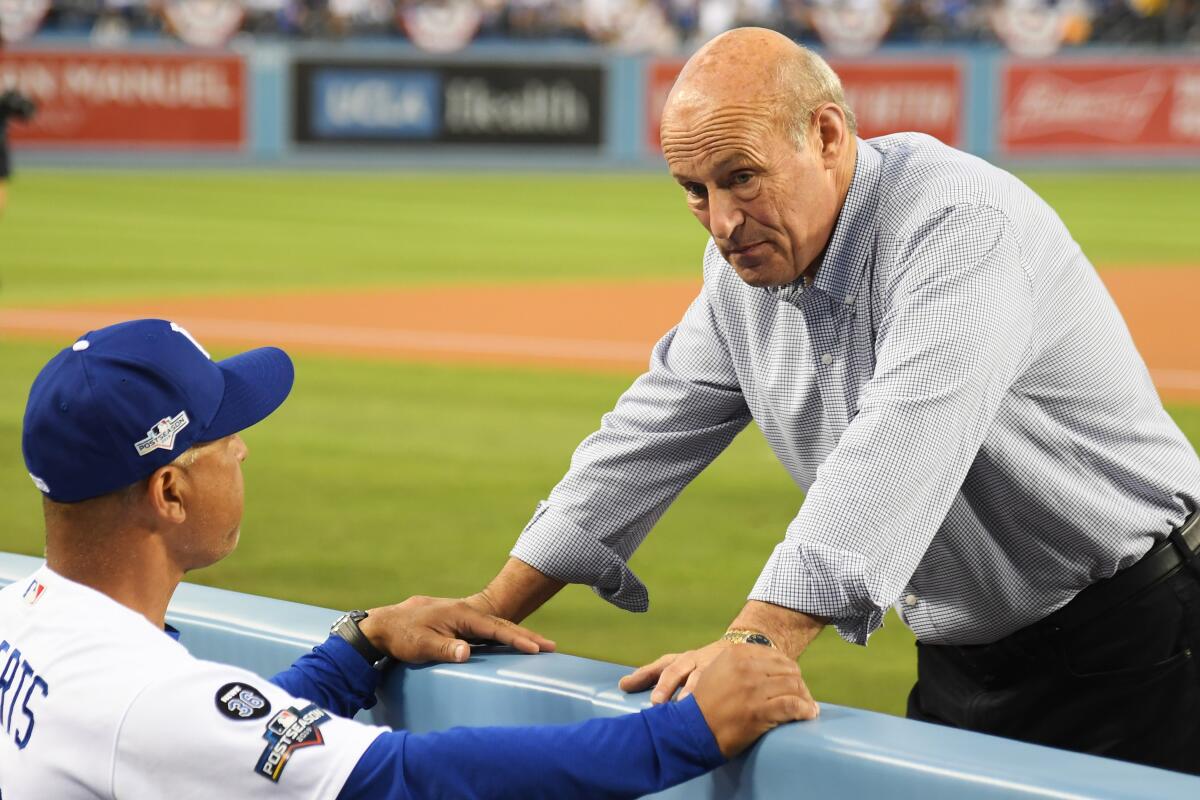
Kasten ran the Braves when they won their lone championship in Atlanta, in 1995, amid a string of 14 consecutive division titles. The foundation: Greg Maddux, Tom Glavine and John Smoltz, all marquee attractions as starting pitchers. If one was pitching, that was reason enough to watch.
None of the opportunities of which Kasten speaks would matter if no one is watching. So wouldn’t an emphasis on starting pitching make the games more attractive to watch?
“I don’t know whether that’s true or not,” he said. “I do know the game is really interesting when there are a lot of strategic decisions at the front. That’s not a bad thing. I don’t know how the game is going to be 10 years from now, or 20 years from now. But I know we will continue to relate across the board to a wide range of fans. I’m sure of that.
“This sport is so good. It wouldn’t have lasted 150 years if it wasn’t.”
This is a vigorous discussion for the offseason. If the Dodgers do not win Game 6 of the NLCS on Saturday — with Scherzer, their marquee starter, already scratched — their offseason starts Sunday.
More to Read
Are you a true-blue fan?
Get our Dodgers Dugout newsletter for insights, news and much more.
You may occasionally receive promotional content from the Los Angeles Times.

